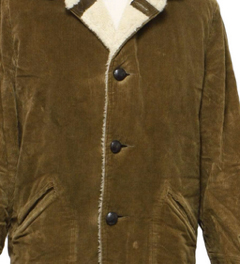Like many people, I was shocked by the death of Philip Seymour Hoffman. In part, I’m sure because we happen to live in the same neighborhood. His son once played in the same Little League as my boy. Not on the same team or the same division, but I’d steal glances at him at the Opening Day parade every year. He looked like one version of any dad early on a Saturday morning: disheveled hair, NY Times tucked under his arm, deli coffee in hand, dressed in a brown corduroy coat similar to the one my own Grandpa favored.
But more than that, Hoffman’s death struck me hard because I thought he was truly one of the greats. An actor who became his role, became the person he was portraying, not a famous actor playing a role. And in doing so, he illuminated humanity in a little bit different or better way. For me, that is the essence of great art, to create understanding, and perhaps just a touch of empathy. Philip Seymour Hoffman achieved it. Witness his Capote performance as the very essence of that.
But the hardest part of his death for me, who knew him only as an artist, was that his art did not save him. We all know the tales of young actors, writers, artists, musicians who are done in by success. Overwhelmed by sudden fame they take it too hard, go too fast, give too much and flame out when their dream was just beginning. But I don’t know if you can call young artists “greats” when they’ve not stood the test of time. Who is to say how the lives of Janis Joplin, Jean-Michel Basquiat or Amy Winehouse would have played out. Would they have come to embody the lifelong greatness of Mick Jagger or Meryl Streep, Picasso or Lessing or ended as a one paragraph note in an art history book? We will never know. But Hoffman, it seemed apparent, had found his way to magic. At 46, he had it licked, turning in genius every single performance. And so it stunned me, frightened me even, to learn his art did not rescue him, could not exercise his demons. It frightens me still because I want writing to save me. I ache to know that my work will someday stand beyond me, make my daily struggles “worth it”, that my writing means something in the vast open landscape of my middle age.
In the end, we can never know another’s struggles, can never truly understand from where they came, where they seek to go. Instead, we can appreciate, admire and give thanks for the great art they share and hope somewhere their remarkable souls find peace and contentment. While we stay to brave the demon battle one more day.


